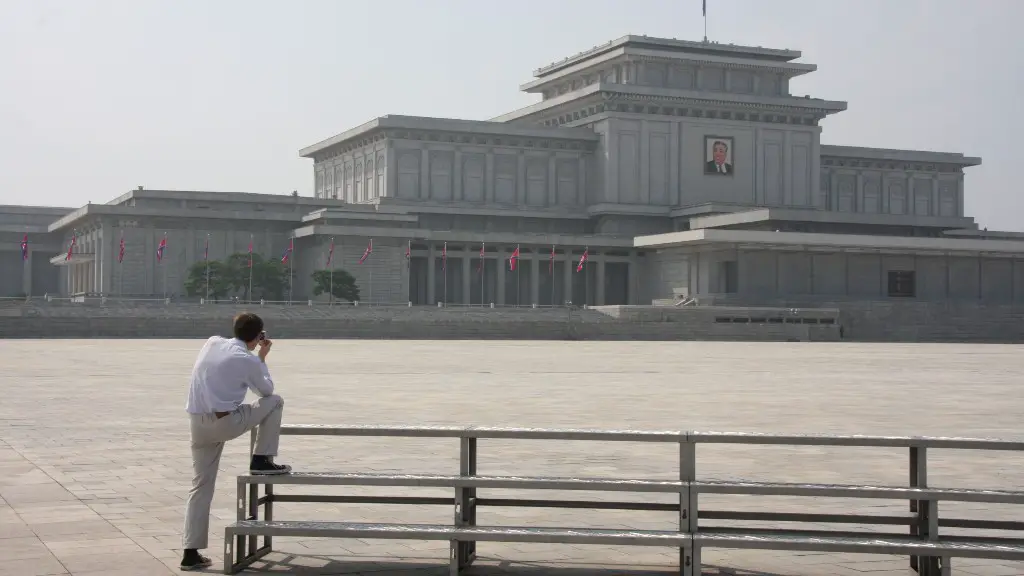Why North Korea and South Korea
North and South Korea have been in a state of crisis since the Korean War in the 1950s but there are still many unanswered questions surrounding their relationship. In this article we will be exploring the history of North and South Korea and why they continue to be separated to this day.
The two nations have been divided since the end of World War II, when the Allies gave control of the Korean peninsula to the United States and the Soviet Union. The two powers had different plans for the peninsula, and it was agreed to divide Korea along the 38th Parallel. The northern half was controlled by the Soviets and the southern half was controlled by the United States. This formed the two nations of North and South Korea.
In 1950, after failing to reunite the nation, the North invaded the South in an attempt to reunify the Korean peninsula. This led to the Korean War, a violent and bloody conflict that lasted until 1953. After the war, both nations remained divided, with North Korea becoming a Communist state and South Korea becoming a Democracy.
To this day, North and South Korea are still separated by the Demilitarized Zone (DMZ), a heavily fortified zone along the 38th Parallel. North and South Korea have also adopted two very different styles of government, which have led to further tension between the two countries.
North Korea is a single-party state, governed by the Korean Workers’ Party. South Korea is a democracy, with multiple parties and a strong independent government. North Korea is also known for its oppressive and authoritarian rule, while South Korea is seen as a model of democracy and human rights.
The differences between North and South Korea have created a difficult situation for the Korean people, who have been divided and unable to reunify since the end of the Korean War. The South has attempted numerous times to reach out to the North for reunification, but these efforts have been rejected by the North Korean government.
Economic Prospects
North Korea has a very different economy compared to South Korea. The North’s economy is heavily reliant on the production of agricultural products and coal, while South Korea’s economy is highly industrialized, with a leading manufacturing sector and a rapidly growing high-tech sector.
North Korea remains largely isolated from the rest of the world due to sanctions, which has caused its economy to suffer. South Korea, on the other hand, is now one of the world’s largest economies, with a thriving technology and automotive industry. It also has strong diplomatic ties to countries all over the world.
The differences between the two economies are stark and have only widened since the end of the Korean War. This, in turn, has created a huge gap in the standard of living between the two nations.
However, in recent years, North and South Korea have taken steps towards reconciliation, with both countries engaging in talks to promote peace on the peninsula. For example, in 2018, the two countries signed an agreement that ended decades of tension, and in 2019 they reopened trade and communication channels.
This has given many hope that the two nations may eventually be able to reunify, though this seems unlikely at the moment due to the differences between them.
Political Climate
The differences between North and South Korea extend beyond the economic realm. North Korea is an authoritarian regime led by Supreme Leader Kim Jong-un, while South Korea is a democracy, largely led by President Moon Jae-in.
North Korea has a long record of human rights abuses and harsh punishments for those who oppose its policies. It has also threatened South Korea with nuclear weapons several times, most recently in 2017 when it launched several ballistic missile tests. South Korea, on the other hand, is a major advocate for human rights and international peace.
In addition, the two countries have different political views. North Korea is a hardline Communist state, while South Korea has adopted policies more closely related to those in Europe and the United States. This has caused tension between the two countries and has hindered any potential reunification.
Response to International Relations
North and South Korea have very different responses to international relations. North Korea has historically been opposed to countries outside of its own borders and has refused to take part in international relations. South Korea, on the other hand, has increased its global ties significantly in recent years.
North Korea has often relied on saber-rattling and threats of violence in order to get its point across to the international community. This has isolated the nation from many countries, though it has recently begun to show signs of increasing its diplomatic ties.
South Korea, on the other hand, is deeply involved in international politics and is a member of many of the world’s most prominent political and economic organizations. It has also maintained strong ties with the United States and other Western countries.
This difference in how the two nations approach international relations has made it difficult for North and South Korea to find common ground and reunify.
Current Situation
The current situation between North and South Korea is complex and uncertain. The two countries are still technically at war, and there have been various instances of military escalations in recent years. This has caused mistrust between the two countries, making it difficult for them to reach a peaceful reunification agreement.
Despite the mistrust, there have been some attempts at peace throughout the years. In 2018, both countries agreed to a historic peace agreement and reopened communication channels. In 2019, the two nations also jointly participated in the Winter Olympics in PyeongChang, South Korea.
These steps towards peace have given many hope that there may still be a chance for reunification in the future, though there is still much work to be done if the two nations are to ever find peace.
Resolution
Reunifying North and South Korea is no easy task. The two nations have vastly different political and economic systems, and both sides will need to work hard to bridge the gaps between them if reunification is to ever become a reality.
North and South Korea have taken strides towards peace in recent years, but much work remains. In order for the two nations to truly reconcile and consider reunification, they must put aside their differences and focus on what is best for their people.
Reunification of North and South Korea would be a monumental achievement, not just for the Korean people but for the entire world. If both sides continue to take steps towards peace, then there is hope that one day the two nations will be able to put their differences aside and find a way to live in harmony.
Political Implications
There are a number of political implications that would arise if North and South Korea were to reunify. For one, it would mean a major change to the geopolitical landscape in East Asia, as well as a significant disruption to the balance of power in the region.
Reunification would also have major economic implications, as the two nations have vastly different economic systems. It would require a massive effort to integrate the two economies and bring them in line with international standards.
Finally, reunification would likely spur a number of other political changes, including the potential for the two nations to work more closely with other countries in the region and beyond.
Conclusion
North and South Korea have been separated since the end of the Korean War in 1953, and there is still a long way to go before they can be reunited. The two nations have vastly different political systems, economies, and foreign policies, which has made it very difficult for them to reach a peaceful resolution. However, despite these challenges, there is hope that the two nations can eventually find a way to reconcile and reunify.





